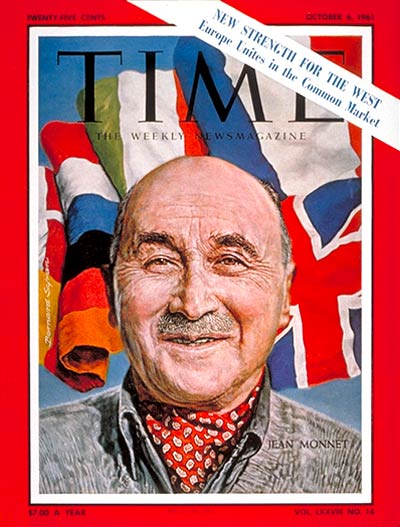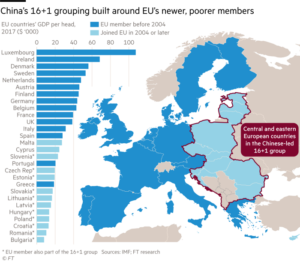Research & Studies

Europe’ – as we know it in 2017 – similar to democracies – might ’die’, or collapse as an old and exhausted set of institutions, regulations and construction methods but it will survive as an historically accumulated and constantly emerging complex web of cultures and social innovations. Consequently, it might be reborn again and again…
Lecture by Ferenc Miszlivetz (iASK) at HAS on the 1st of December 2017
Europe’ – as we know it in 2017 – similar to democracies – might ’die’, or collapse as an old and exhausted set of institutions, regulations and construction methods but it will survive as an historically accumulated and constantly emerging complex web of cultures and social innovations. Consequently, it might be reborn again and again…
The fading away of post-WWII Pax Americana will result in the fading away of its interconnected but elite-lead version of post-war European construction – the apex of which was German Europe dominated by a post-Cold war unilaterally united Germany.
Elite driven methods of social and political construction and management structure based upon arrogance, ignorance and incompetence (to quote Stuart Holland) resulted in impotence.
But new players will emerge, of whom we do not know too much. We know even less about their future rules and habits of cooperation and interaction, or their capacity for joint construction.
What is clear: the long period of a European reticence, a lack of sincere internal dialogue, cannot be maintained, and the time for a New European Assembly and debate is approaching. Old players need to invite newcomers into a new chain of negotiations which will positively result in a New 21st Century European Movement that will, hopefully sooner rather than later, work out new methods, rules and purpose for further European construction. Without a common purpose, based upon widespread consensus, no political power can be created by Europe’s democracies.
“Continuing intensive dialogue
In times of global uncertainty, Germany and China intend to consolidate their cooperation, reaffirmed Angela Merkel following initial talks with her Chinese counterpart Li Keqiang. China’s prime minister is on a two day visit to Germany.
At a joint press conference …in Berlin, Chancellor Merkel underlined the good and intensive atmosphere in which their talks had been conducted. In the 45 years since diplomatic relations were established between the two countries, she said, China >has become an increasingly important partner and is now also a strategic partner<. This applies to a full spectrum of relations; political, economic, >and also cooperation on cultural and societal matters< …
Addressing Global problems together
In view of many and diverse global challenges, Angela Merkel stressed the need to accept responsibility and develop the partnership in a wide range of different fields. That means >working together for a rule-based global order<. In the year of German G20 Presidency – following China’s Presidency in 2016 – she is very happy that there is such an intensive exchange of experience with the Chinese leaders. …” (June 1, 2017 The Federal Chancellor)
It seems that before convergence, we Europeans need to face the difficulties of harmonizing divergent worldviews, power positions and interests. To overbridge gaps of mutual misunderstandings, to end the long period of non-dialogue, maybe we should start with debating the virulent Western culture of double standards. Jupiter should face the bull: before convergence, reasons for divergence need to be studied, understood, and eliminated. Convergence’s precondition is divergence management. Otherwise the overblow of diversity will wash away the dream and structures of unity.
When looking for extension the scope and size of agency old/new players might pop up on our cognitive maps. The restructuration of our societies, the ongoing and unstoppable internal and external flows of migration, the alarming but in its consequences hardly understood demographic changes, Europe’s radically ageing population, a new kind of sexual revolution empowering women’s role in public affairs, the radically new value system of x and y generations, the unforeseeable consequences of IT and social media, the growing awareness of cities and municipalities of their potential role in shaping the future , all add up to the radically ad rapidly changing global and European emerging political landscape.
Among the potentially decisive players of the new European construction, both macro and micro regions will play and outstanding role. Vis-a-vis cumbersome and increasingly dysfunctional nation-states/member states, cross border regions are vital in terms of economic, cultural and institutional cooperation in previously marginalized parts of Europe. The potential dynamism of the Central European macroregion is one of the best examples to illustrate this tendency. If ’Europe’, namely the EU is serious about coming out from the deadlock of its integration and determined in searching for new methods, agency and finally a new structure for the European construction, cross border macroregions such as the one composed by East-Central Europe’s 16 countries will have to play a vital role in the badly needed processes of renewal.
Instead of pursuing double speak based upon double standards, still well respected old Europe players should concentrate on future cooperation with hitherto neglected or marginalized new/old partners.
Post-German, post-Merkel Europe needs new visions, a redefined purpose, mutual recognition and fair methods for a more cooperative integration.

© 2017-2023, All Rights Reserved